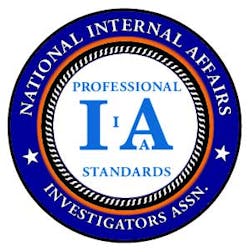Police Shootings
As long as there have been modern police, there have been and will be police shootings. These will result in injury or death of a participant. Anyone who has been a police officer for any amount of time has known an officer involved in a duty shooting. Knowing of these and what actually happened is usually far from the immediate knowledge of most officers. Officers, as others, tend to judge and become opinionated as to what really occurred. This often leads to leaks to the public. Officers love to talk and speculate as much as anyone else. In this situation it is best that we learn to keep our mouths shut and let the investigation take its course.
Immediately after an incident, officers are bombarded by well meaning citizens, family and the press with "What happened? Who shot first? Are police shooting on the rise? Are they justified and how? Why did they have to shoot so many times? Why did they not just wound them? Finally, the worst we can hear "they shot them like a dog." In all of these situations, it is best if we train officers to give a standard answer, "I can't talk. It is under investigation."
However, open communication should begin immediately after an incident occurs. The chief or his/her designee should handle all inquiries. Someone from command staff must be present at the scene or, if an officer is injured, at the hospital. There has been severe criticism in the past of the chiefs not being present during such incidents. It sends a message that he/she is not in tune with the community. Not being present sends a message of not caring to the troops. No chief desires for this to happen. Having been an investigator and supervisor for years, I have had to leave personal business for an official call or, to cancel vacation. In times such as these, the chief must weigh the options and perceptions that may come from failure to return.
Opinions will be formed within minutes of the incident. A press conference should be held as soon as possible. The truth must be told with minimum detail. All facts will not be available, but communication is open. If you do not have the true and correct answer to a question, say it. To make an unconfirmed statement is the simplest way to discredit an open investigation. Maintain open dialogues with the public, media, community activists, and the families of all involved. Have briefings for each entity. Do this on a continuing basis. Communications with these groups will establish much needed trust.
Too often, preliminary information is released and is later found to be inaccurate. This causes emotions to run amok and the public to jump to the wrong conclusion. It also leads the public to believe that there is a conspiracy to cover up misconduct. This is the last thing any department needs. This reinforces the need to release information at the correct time.
Witnesses must be secured and interviewed properly before the media can interview them. Ask them not to talk to anyone until the case is complete and they have been told they can. This tactic will work. Everyone wants to be important--a witness is no different.
From the perspective of the criminal investigators, internal affairs investigators, command staff, and trainers, we must discover the facts and act upon them. Most often we do. Sometimes we cannot. It is a fact of being in the business. Not having the answers makes it hard to reason with someone's perception of a police action that is already engraved into stone. Therefore, the importance of proper documentation and leaving no stone unturned. Bear in mind neither division should make any public statement.
What will happen in the media? They will have the information that needs to be released at the time--no more and no less. The investigation may be complete with all questions answered. What information to release who to release it to is a decision best made by command staff and the district attorney. Timing is important. No information should be released until it is confirmed and reconfirmed. This is not the time to play favorites with the media. This is a big factor often overlooked.
What does this have to do with internal affairs? Plenty, as most departments have policies against unauthorized release of information. Most importantly, IA is also investigating the incident. We do not need information released anymore than does the criminal investigations side of the house. So, there is vested interest for all.
Should your department have an officer-involved shooting, think of these issues. We are part of our communities. We are here to serve and protect. We must work with our citizens to restore calm in a situation and bring a tragic incident to a proper close. We have to do so openly and honestly.
